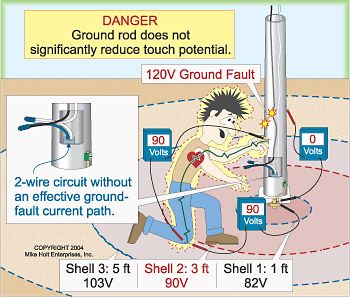fulthrotl.......you are so involved with all!!!...............need help????
you're too cool................................
rich
more a case of just wondering.
i was a witness on a manslaughter issue a number of years ago,
and i've gotten calls on swimming pool and fountain bonding that have
perplexed folk.
and i remember a 75 foot aluminum chris craft in lido yacht basin
that was leaking 15 amps of 120 VAC into the water, and ate up
everyone's zincs and props for about 100 yards.
didn't do the aluminum hull on the chris craft any good, either.
it was better than the zincs, wherever the fouling paint was
chipped or damaged, at sacrificing itself.
the manslaughter case ended with the property owner going
to prison, and he was in his 60's.
the chris craft ended with the owner shearing off two pilings and a
dock finger, and deciding that a 75' flatbottom boat with 4' of draft
built for freshwater didn't belong in the ocean. he flogged it to someone
in san pedro. i heard it sunk a few years later.
to the poster who lives nearby, i'd be interested if you let us know
how it turns out... thanks.


